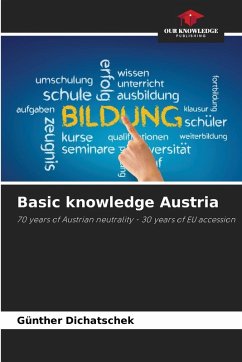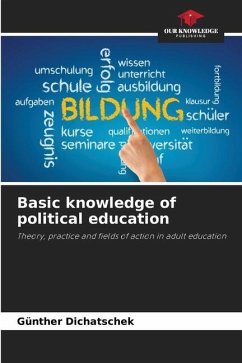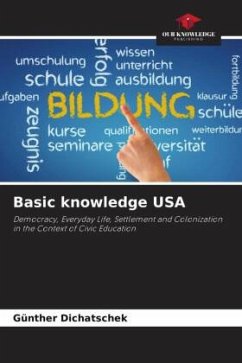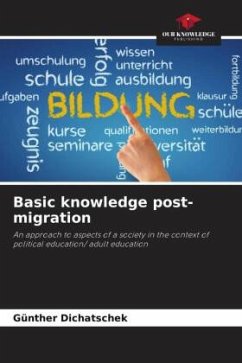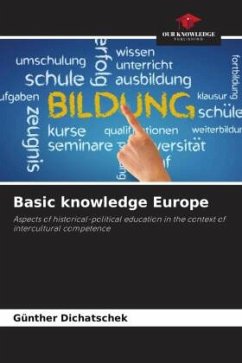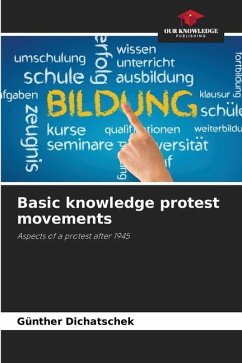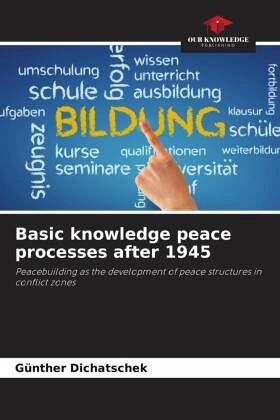
Basic knowledge peace processes after 1945
Peacebuilding as the development of peace structures in conflict zones
Versandkostenfrei!
Versandfertig in 6-10 Tagen
25,99 €
inkl. MwSt.

PAYBACK Punkte
13 °P sammeln!
The study deals with the efforts of post-war societies to engage in sustainable "peacebuilding". This is understood to mean overcoming previous wars, preventing new outbreaks of war, and building long-term peace structures. By presenting three case studies with the aim of understanding peacebuilding as an interaction of global and local processes and dealing with the areas of conflict in an exemplary manner, the aim is to awaken pedagogical understanding for this aspect in political education. The areas of the case studies are thematized with cause, course of war and termination of conflict. T...
The study deals with the efforts of post-war societies to engage in sustainable "peacebuilding". This is understood to mean overcoming previous wars, preventing new outbreaks of war, and building long-term peace structures. By presenting three case studies with the aim of understanding peacebuilding as an interaction of global and local processes and dealing with the areas of conflict in an exemplary manner, the aim is to awaken pedagogical understanding for this aspect in political education. The areas of the case studies are thematized with cause, course of war and termination of conflict. The study points to the process character in post-war societies of a transition from war to peace and presents efforts of the actors on the ground to peacemaking measures, thus a political education and peace education. Part of the outcome of such processes is that their character is open, from success to failure.



